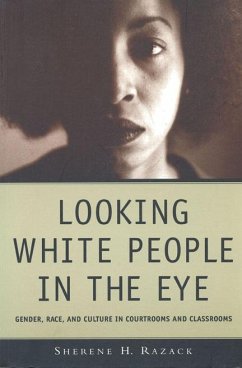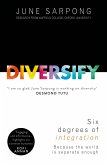In this Book the Author Explores What Happens When Whites Look at non-whites, and in particular non-white women. Most studies examining this encounter between dominant and subordinate groups focus on how it occurs in films, books, and popular culture. In contrast, Razack addresses how non-white women are viewed, and how they must respond, in classrooms and courtrooms. Examining the discussion of equity issues in the classroom and immigration and sexual violence cases in the courtroom, she argues that non-white women must often present themselves as culturally different instead of oppressed. Seen as victims of their own oppressive culture who must be pitied and rescued by white men and women, non-white women cannot then be seen as subjects. This book makes clear why we must be wary of educational and legal strategies that begin with saving 'other' women. It offers powerful arguments for why it is important to examine who are the saviours and who are the saved, and what we must do to disrupt these historical relations of power.
Examining the classroom discussion of equity issues and legal cases involving immigration and sexual violence, Razack addresses how non-white women are viewed, and how they must respond, in classrooms and courtrooms.
Hinweis: Dieser Artikel kann nur an eine deutsche Lieferadresse ausgeliefert werden.
Examining the classroom discussion of equity issues and legal cases involving immigration and sexual violence, Razack addresses how non-white women are viewed, and how they must respond, in classrooms and courtrooms.
Hinweis: Dieser Artikel kann nur an eine deutsche Lieferadresse ausgeliefert werden.








